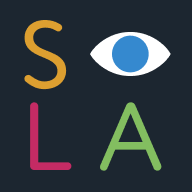interviewed by Illustration West 54 Show Chair Marc Scheff
You’re a commercial illustrator, and you use traditional media. In this age of digital wonder, has being a painter affected the type of Illustration jobs you get?
- Without a doubt working in a less forgiving media can be challenging. Today, the stars need to align for an editorial deadline to be possible, with the timing being just right. I do have digital work, but my paintings have become a more primary focus, and are leading a transition to more gallery interests. Projects with longer timelines and bigger scope are a focus, which includes children’s book work that is in a conceptual phase right now.
You studied at the Illustration Academy. How did that program influence your work?
- The Illustration Academy was an immense influence on how I have shaped my artistic practice. The program and discussions with the outstanding faculty and students shaped who I am as an artist in ways too numerous to count. Everyone plateaus at a certain point in their development, and workshops like this and the Illustration Master Class provide a ladder to the next level. Some of the next pieces after attending these environments have become benchmarks that I measure all new work against.
There are more and more DIY art classes, workshops, and retreats popping up every year. How do these differ from a traditional education?
- Being a product of the traditional bachelor’s and master’s program, it is hard to imagine myself doing it any other way. I valued that consistent curriculum at the beginning to ensure I was on the right track. Maturity will arrive upon everyone at different times, and I know that I could not have pieced together the education that I have now on my own. As an educator now, in a bricks and mortar public university, I can see the attraction of these workshops to fill in the blanks and offer new experiences. I began attending workshops while still in grad school, and have continued to do so in order to make new contacts and increase my skill-set as an teacher/artist. These DIY classes, workshops and retreats have a greatly streamlined bureaucracy compared to a college or university. This obviously allows for more responsive adjustments to curriculum and the roster of artists to offer new and exciting opportunities. The attraction of pulling a __famous artist__(fill in the blank with your favorite working artist/illustrator) out of the studio, and away from their practice, for a week is going to create an energy and stimulate conversations that elicit action and movement that is on a different scale than you can find in a traditional school. Over a 15-week semester, with other coursework, and considerations for part-time/full-time jobs the conversations change. Momentum is more gradual. It’s easy to find a week to dedicate to something you care about, but much harder to make a big commitment like a degree program, especially past a certain age.
Do you need to go to art school to work as an artist?
- The short answer is no. A diploma guarantees nothing, and does not conceal a poor portfolio. Art directors are looking for quality artwork, not for a piece of paper with fancy lettering. The world is full of successful self-made artists and likewise those that never made it despite advanced degrees. The longer answer is wrapped up in the idea that the college experience is more than a singular direction of study. I’m biased on this account, but I still believe there is immense value in the college experience for those students who want it. Exposure to interdisciplinary approaches and conversations with groups of people not from the same artistic pool can open up new directions not afforded by continuing to swim with the same school of fish. We are creatures of comfort, and are quick to fall back upon the same approaches with which we’ve already achieved a measure of success. Practicing and repeating derivations of the same inspirations leads you nowhere that hasn’t already been found. Students need to be challenged and made slightly uncomfortable in order to stimulate new connections or ways of seeing their work. I can only speak to my personal experience, but it’s hard to imagine the discipline it would take to ensure your self-education would be eclectic and diverse enough to match what a caring faculty body can present.
Tell us a story: favorite client ever.
- While I was still at school, my professor gave me the name of an art director at Cleveland Magazine and I set up an appointment to drop-off a portfolio for review. He had some time to sit with me and look through my work that afternoon, offering me some advice and the promise of potential work in the future. I thanked him, and left for the 45-minute drive home. By the time I arrived, an assignment for 6 spot illustrations was waiting for me. It sounds like a perfectly ordinary event in the life of a freelancer, except when it’s your first professional job.


